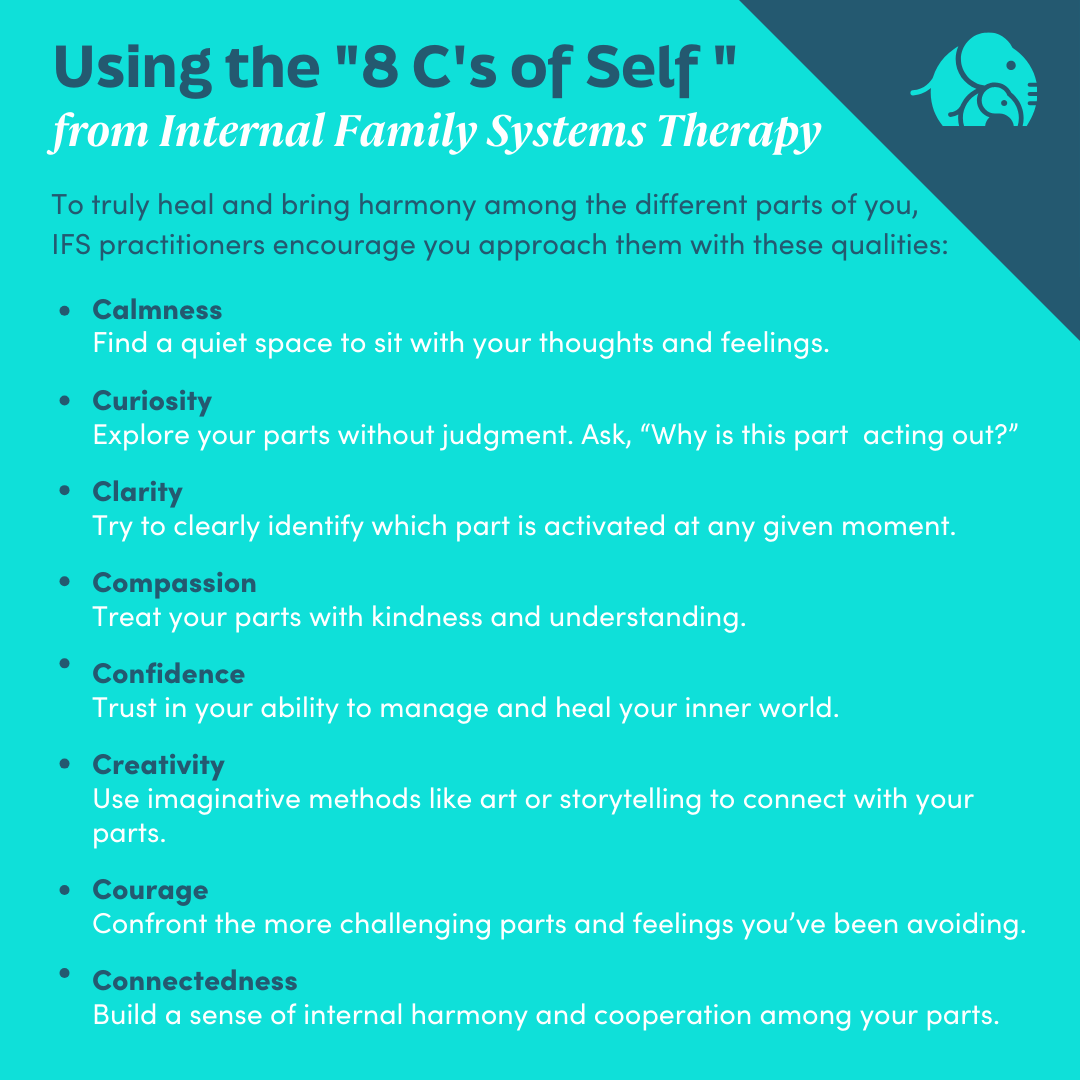Welcome to a deep dive into the transformative world of Internal Family Systems (IFS), a therapeutic modality that’s gaining traction for its unique approach to healing. This blog post outlines the core concepts of IFS, its benefits, and how you can apply some of its strategies in your own life.
The Experts:
Alice Mills Mai
Dr. Lucas Volini
What is Internal Family Systems Therapy?
Internal Family Systems, developed by Richard “Dick” Schwartz, is a therapeutic approach that is based on Schwartz’s book, “No Bad Parts.” This modality views the mind as naturally multiple with various ‘parts,’ each with its own perspectives and roles. These parts can either work together harmoniously or conflict with one another, affecting our inner and outer lives.
The guests break down IFS as, “Internal means inside us, our brain. And the systems or the parts of us all come together to make us whole.” This intricate system aims to bring these parts together, fostering unity and healing through what is known as the ‘self.’
Key Components of Internal Family Systems
IFS identifies three primary types of parts:
1. Managers
Managers are proactive parts. They try to control the environment to protect the person from getting hurt. For instance, a manager might employ perfectionism as a defense mechanism. As Alice, a clinic director and IFS practitioner, explains, “A manager could be a perfectionist…but as a result, it may also be causing you anxiety or depression.”
2. Firefighters
Firefighters are reactive parts that emerge when exiles threaten to break out. They attempt to distract or numb us, potentially through behaviors like substance abuse or overeating. A firefighter part’s job, in Alice’s words, is to “save the day” when our usual defenses (managers) fail.
3. Exiles
Exiles are parts that have been hurt and are often buried deep within us. They hold the pain and trauma that our managers and firefighters try to keep at bay. The goal of therapy, as explained by Alice, is to heal more of these exiled parts to promote inner harmony: “So maybe five-year-old you can take a seat now. I am an adult. I am here. I can take care of you.”
Using the “8 C’s of Self ” in IFS

To truly heal and bring harmony among your parts, IFS practitioners have you approach them with these qualities, often known as the “8 C’s of Self-Leadership”:
- Calmness: Find a quiet space to sit with your thoughts and feelings.
- Curiosity: Explore your parts without judgment. Ask, “Why is this part acting out?”
- Clarity: Try to clearly identify which part is activated at any given moment.
- Compassion: Treat your parts with kindness and understanding.
- Confidence: Trust in your ability to manage and heal your inner world.
- Creativity: Use imaginative methods like art or storytelling to connect with your parts.
- Courage: Confront the more challenging parts and feelings you’ve been avoiding.
- Connectedness: Build a sense of internal harmony and cooperation among your parts.
Tips for Practicing IFS
Journaling: Write down daily reflections, identifying and naming the parts involved in your feelings and actions.
Meditation: Spend a few minutes each day in guided imagery, focusing on calming and understanding your parts.
Self-talk: When feeling stressed or triggered, take a moment to internally talk to the part of you that’s activated.
Therapy: If possible, consult a professional trained in IFS to guide you through the deeper layers of your internal system. Find one at Ellie here!
Criticisms of Internal Family Systems Work
When asked about problems with IFS, Alice shares: “Some of the criticisms are about IFS not fully accounting for external factors such as race, socioeconomic, religion, and other sociopolitical factors. Deran Young does a beautiful job when it comes to IFS and race.”
Lucas shares, “Gestalt therapists have essentially been doing IFS for decades”
It should be noted that not every therapy modality works for each person. Everyone is different and will connect with different ways of connecting and processing. This underscores the importance of asking your therapist questions and continually revisiting your therapy goals.
Conclusion
Understanding and integrating the principles of Internal Family Systems can lead to greater self-awareness and emotional healing. By identifying your parts, practicing self-compassion, engaging in guided imagery, and applying the 8 C’s of self, IFS believes that you can move towards a more harmonious and balanced life.
Listen to the full podcast here:


